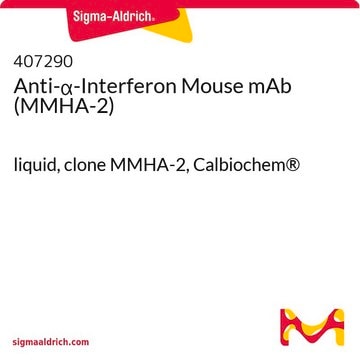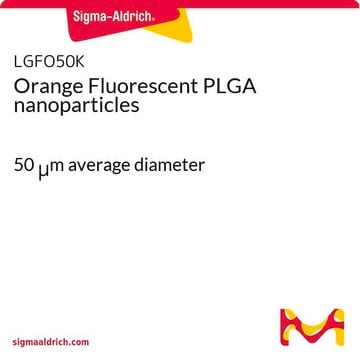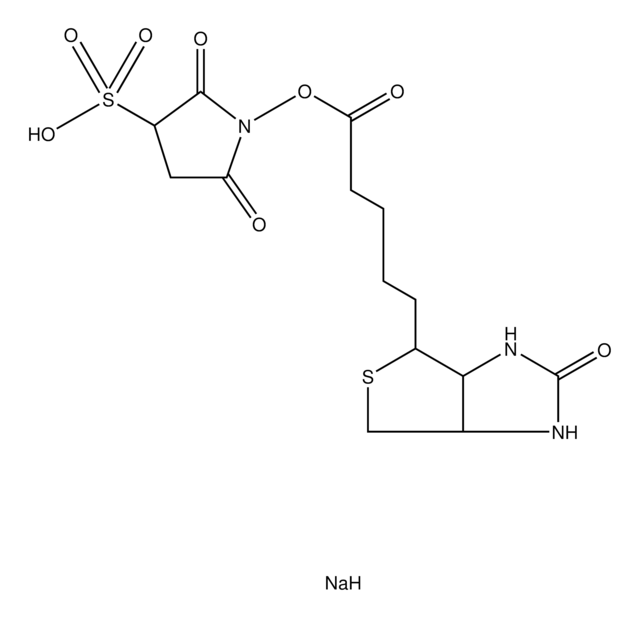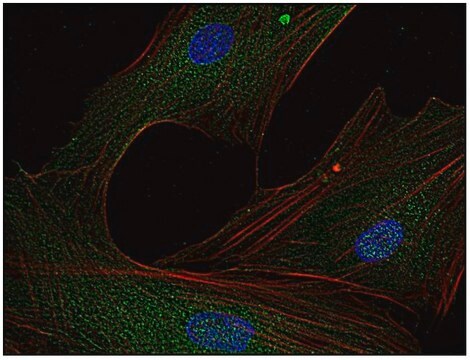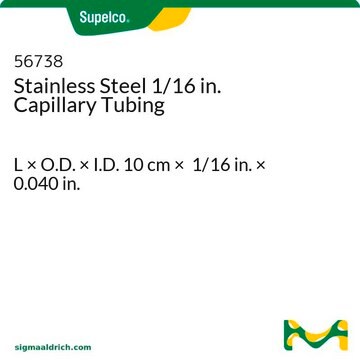MAB411
Anti-Interferon-α2 Antibody, clone ST2541
ascites fluid, clone ST2541, Chemicon®
Synonym(s):
Interferon alpha-2, IFN-alpha-2, Interferon alpha-A, LeIF A
About This Item
Recommended Products
biological source
mouse
Quality Level
antibody form
ascites fluid
antibody product type
primary antibodies
clone
ST2541, monoclonal
species reactivity
human
manufacturer/tradename
Chemicon®
technique(s)
ELISA: suitable
affinity binding assay: suitable
neutralization: suitable
western blot: suitable
isotype
IgG1
NCBI accession no.
UniProt accession no.
shipped in
dry ice
target post-translational modification
unmodified
Gene Information
human ... IFNA2(3440)
Related Categories
General description
Specificity
Immunogen
Application
Neutralizing Analysis: A representative lot neutralized human IFN-αA (IFN-α2) and IFN-αN (produced by Nalmalwa human Burkitt′s lymphoma cells), but not IFN-α1, antiviral activity against Semliki Forest Virus in human WISH amniotic epithelial cell cultures (Shearer, M., et al. (1984). J. Immunol. 133(6):3096-3101).
Affinity Binding Assay: A representative lot captured human IFN-α2, but not human IFN-α1 (Shearer, M., et al. (1984). J. Immunol. 133(6):3096-3101).
ELISA Neutralizing Analysis: A representative lot was used as the detection antibody for the detection of human IFN-αN (produced by Nalmalwa human Burkitt′s lymphoma cells) by sandwich ELISA (Shearer, M., et al. (1984). J. Immunol. 133(6):3096-3101).
Western Blotting Analysis: A representative lot detected IFN-αA (IFN-α2) and IFN-αN (produced by Nalmalwa human Burkitt′s lymphoma cells) under reducing condition by Western blotting (Shearer, M., et al. (1984). J. Immunol. 133(6):3096-3101).
Inflammation & Immunology
Cytokines & Cytokine Receptors
Physical form
Storage and Stability
Legal Information
Disclaimer
Not finding the right product?
Try our Product Selector Tool.
Storage Class Code
10 - Combustible liquids
WGK
WGK 1
Flash Point(F)
Not applicable
Flash Point(C)
Not applicable
Certificates of Analysis (COA)
Search for Certificates of Analysis (COA) by entering the products Lot/Batch Number. Lot and Batch Numbers can be found on a product’s label following the words ‘Lot’ or ‘Batch’.
Already Own This Product?
Find documentation for the products that you have recently purchased in the Document Library.
Our team of scientists has experience in all areas of research including Life Science, Material Science, Chemical Synthesis, Chromatography, Analytical and many others.
Contact Technical Service